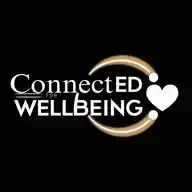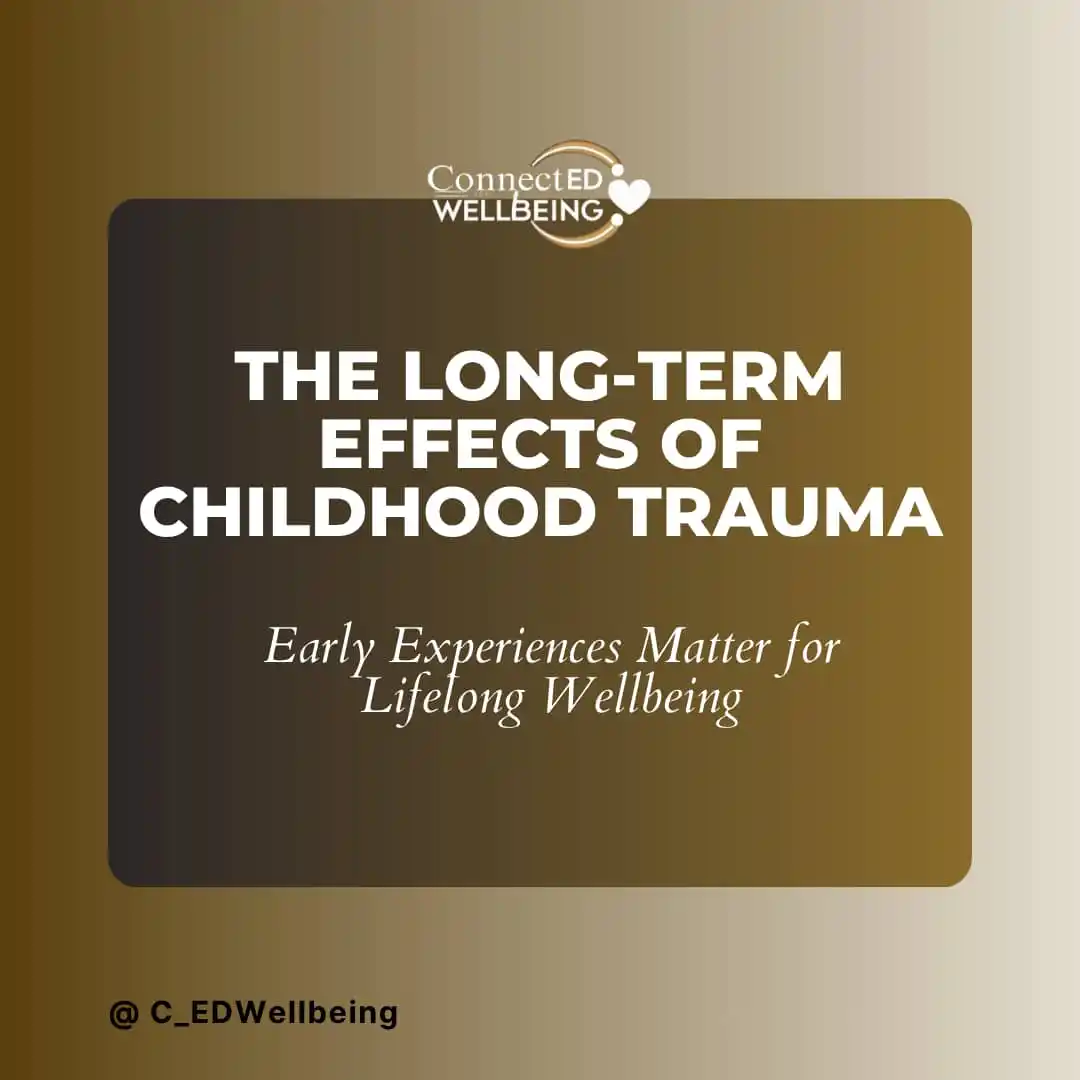
ConnectED For Wellbeing
May 28, 2025 at 07:05 PM
*The Long-Term Effects of Childhood Trauma*
Many adults struggle with low self-esteem, anxiety, or depression without realising these challenges often stem from early life experiences. Professionals working with survivors of trauma often observe that even those who seem confident on the outside may feel disconnected, unworthy, or anxious on the inside. One practitioner described this as people becoming "very good actors," hiding their true feelings behind a composed appearance.
Children who grow up with neglect or abuse may develop a "false self" – a version of themselves shaped by the need to feel accepted or safe. This false self can carry into adulthood, making it difficult to form genuine relationships or feel a stable sense of self-worth.
In many cases, people do not recognise their childhood as traumatic. They may have seen their experiences as normal at the time, making it harder to understand or talk about them later. As a result, many find ways to cope with emotional pain, often through behaviours like substance use or isolation.
When people are unable to heal from their own experiences, they may unintentionally pass on patterns of harm. For example, parents who were punished harshly as children may view such behaviour as discipline. Breaking these patterns often requires recognising past harm and having access to supportive care.
At ConnectED For Wellbeing, we believe that increasing awareness of how childhood trauma affects adult life is vital for building healthier communities.
*Reference*
Downey, C. & Crummy, A. (2022). The impact of childhood trauma on children’s wellbeing and adult behaviour. European Journal of Trauma & Dissociation, 6(1), 100237. https://doi.org/10.1016/j.ejtd.2021.100237

❤️
👍
7